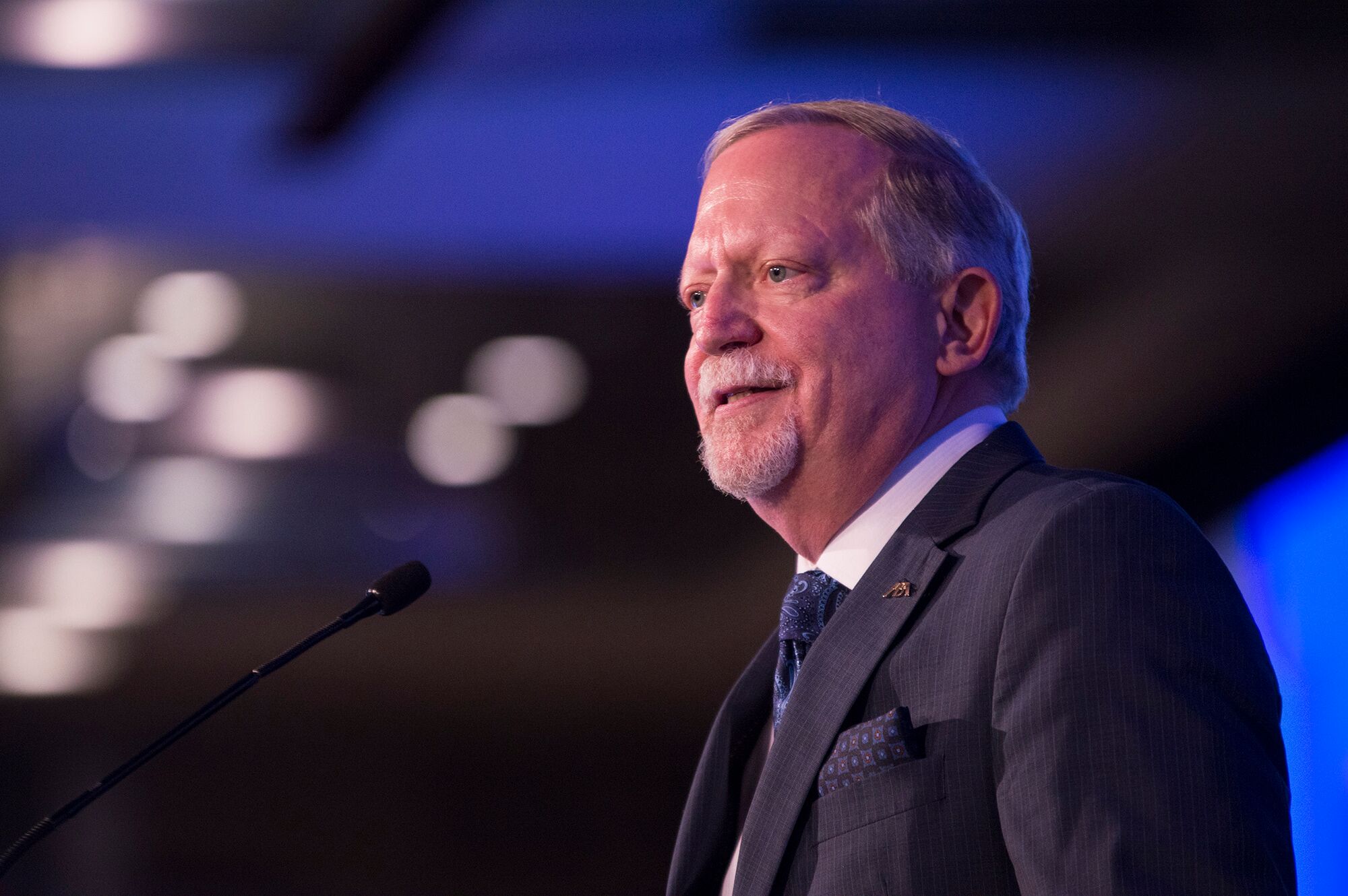'Together, we will thrive,' says incoming ABA President Robert Carlson

Incoming ABA President Bob Carlson. Courtesy of ABA Media Relations.
Incoming ABA President Robert M. Carlson emphasized his role as the steward of the American Bar Association in his speech before the ABA House of Delegates on Monday.
“It is not about me. It is about the American Bar Association,” said Carlson, a shareholder with Corette Black Carlson & Mickelson in Butte, Montana. “I will do everything in my power every single day to advance our association and fight for America’s lawyers and the public that we serve.”
Carlson’s speech noted that the ABA is the only national voice for the American legal profession, giving it the power and responsibility to speak for lawyers.
“Some may say we are driven by ideology, and they are absolutely correct,” he said. “Our ideology is the essential role of an independent legal profession and an impartial judiciary. We are the protectors of equal justice under law in a free, democratic society.”
Carlson defined those values according to the ABA’s four goals: serving ABA members, improving the profession, eliminating bias and enhancing diversity, and advancing the rule of law. He outlined initiatives for each of those goals, starting with efforts to give members more benefits aimed at improving their lives and practices. Noting that the vast majority of lawyers are solos or small-firm lawyers, he said in the coming weeks the ABA would expand resources available to those lawyers for insurance, legal technology and how-to content.
To serve the profession, Carlson said, the ABA would build on work on the future of legal education and the ABA Center of Innovation. He also touted the ABA’s pro bono work, with particular emphasis on the ABA’s homeless outreach efforts and the work of the Young Lawyers Division’s Disaster Legal Services Program, which had a busy year handling disasters across the globe. He also singled out lawyer wellness programs, an emphasis of his immediate predecessor, Hilarie Bass, as a much-needed service to the profession. (A related proposed House resolution was tabled for more input.)
“I guarantee that everyone in this room has had somebody that’s been affected or know someone who’s been touched by mental illness, by addiction, by depression and by suicide,” he said. “We need to work together and be frank, open, honest and clear about why lawyers disproportionately face these problems and what to do about it.”
To meet the ABA’s Goal III, eliminating bias and enhancing diversity, Carlson said the ABA would continue building on efforts to welcome everyone to the table. That means working with bar groups of color, he said, and making sure justice is “available to everyone” and “look[s] like everyone.”
On the association’s fourth goal, advancing the rule of law, Carlson was unequivocal.
“The ABA will always be there—always—to protect and ensure an independent, impartial and adequately funded judiciary,” he said. “Without the rule of law, there is no justice. And without justice, there is no freedom.”
That means the ABA will continue making sure lawyers have professional independence and attorney-client privilege; continue fighting for adequate legal aid funding; and continue ensuring the Constitution applies everywhere, “including at our nation’s borders.”
To that end, he announced he and incoming President-elect Judy Perry Martinez plan to visit the ABA’s Pro Bono Asylum Representation Project in Harlingen, Texas, later this month to meet Bass’ commitment to help families separated by federal immigration authorities.
“It is my honor to work with you to make the ABA the gold standard for our profession and the rule of law,” he said. “Your work with our association makes our nation a better union. Together, we will endure, and together, we will thrive.”
Follow along with our full coverage of the 2018 ABA Annual Meeting.



